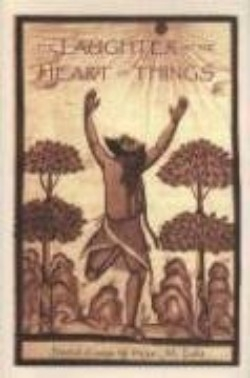The Laughter at the Heart of Things
Selected Essays
The greatness of literary
masterpieces is the deep impact they have on the human psyche, which is in turn the repository of those stories: yet, one needs the insight of readers such as Luke to appreciate fully the aesthetic beauty as well as the psychological depth of the works that marked the stages of civilizations. Here she offers a collection of essays that aims at showing the path for an appreciative understanding of some milestones of Western culture.
Luke is a Jungian counselor and a renowned author of books on the world’s great literature, which she reads in order to unearth the archetypal nature of those stories. After a literary formation in England, she became interested in the works of Carl Gustav Jung; after moving to the United States, she authored several essays in the fields of women’s psychology and Christian ethics.
The Laughter at the Heart of Things is divided into two sections: one exquisitely literary (“Drama”), the other focusing on Biblical episodes as well as issues of Greek mythology (“Musings”). The first part focuses on two plays by William Shakespeare: The Merchant of Venice and Antony and Cleopatra. Yet, the discussion of these plays is framed within an essay on The Ring of the Nibelungen by Richard Wagner, and one on the Oresteia by Aeschylus: it is the archetypal analysis that allows Luke to maintain this structure, obviously oblivious of temporal constraints. The second part contains an essay on the roles of guest and host in the ancient civilizations (“The Stranger Within”) and the essay that gives the collection its title. The latter is a reflection on what “a sense of humor” is; that is, that sense of gaiety that humankind has lost in the modern era, only to rescue it under the altered form of irony. Especially in this section, Luke’s knowledge of literature and psychology offers the most intriguing results.
Helen Luke’s work is a poignant invitation to read works and episodes of Western literature with novel eyes, as she invites the reader to seek the deeper truth that rests in these vestiges of culture, awaiting revelation.
Disclosure: This article is not an endorsement, but a review. The publisher of this book provided free copies of the book to have their book reviewed by a professional reviewer. No fee was paid by the publisher for this review. Foreword Reviews only recommends books that we love. Foreword Magazine, Inc. is disclosing this in accordance with the Federal Trade Commission’s 16 CFR, Part 255.

